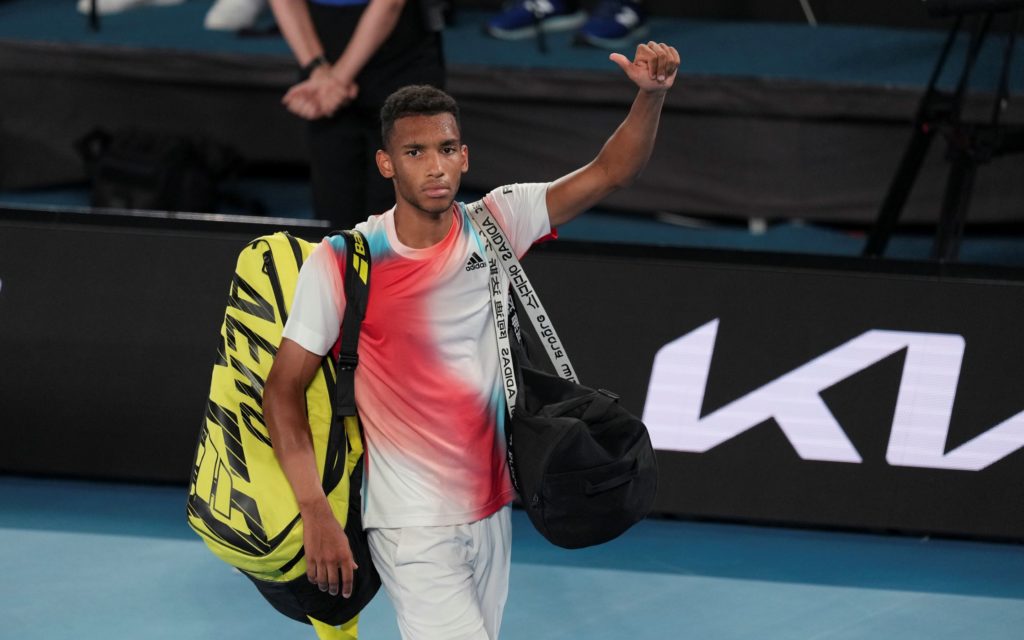
Félix Auger-Aliassime isn’t the first, and won’t be the last, player to lose after having a match point in a Grand Slam quarter-final. But that doesn’t lessen the heartache of being one strike of the ball from winning and then, an hour and 15 minutes later, having to go to the net and shake hands as the loser.
Auger-Aliassime held the match point leading two sets to one and 5-4 in the fourth with No. 2-seed Daniil Medvedev serving to the ad court. The lanky, 6-foot-6 Russian had gotten himself back into the match after dropping the first two sets but Auger-Aliassime’s controlled, consistent and aggressive baseline play had seemingly still kept him a step ahead and ready to get his reward when he got to match point. The opportunity vanished in the flash of a 213 km/h Medvedev first serve to the Auger-Aliassime backhand that he was unable to control and get back into play.
“I’m like, ‘where do I serve, T or wide?’” Medvedev said about his thought process facing the match point. “I decided to go wide, managed to make it – because a second serve is tough. A second serve is where you’re like ‘do I go for the big one, do I go for the safe one?’ Your hand is shaking a little bit more than on the first one – just slap it and pray that it’s in.”
In the next game, Auger-Aliassime appeared to have held serve to 6-5 as he watched, but did not play, a Medvedev cross-court backhand that appeared to be sailing out but wound up landing on the sideline. That made the score deuce and two points later Medvedev broke serve and then held in the following game to level the match at two sets apiece.
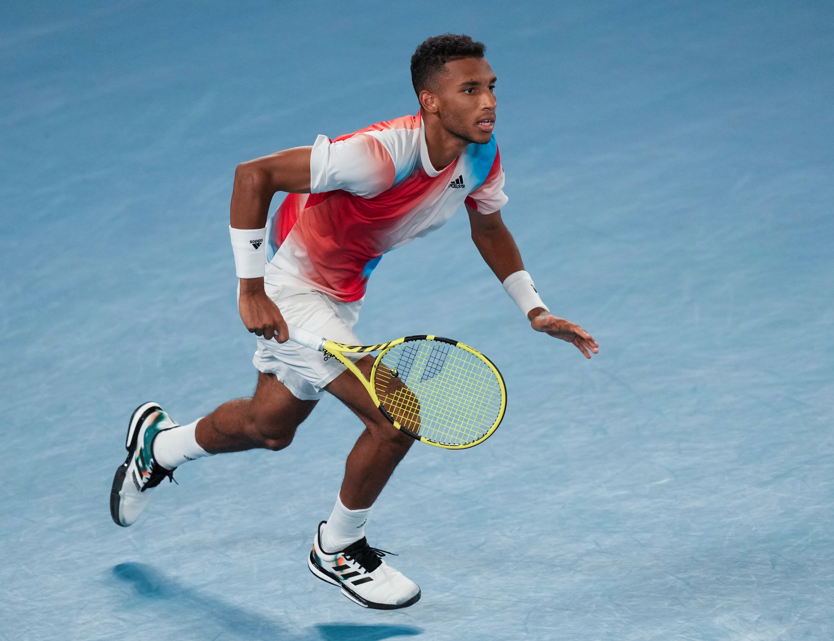
It had to hurt not to convert the match point in the fourth set and there was more disappointment in the fifth when he failed to cash in three break points in the second game, another one in the eighth game and even two more in the final game as Medvedev attempted to serve out the match at 5-4 but fell behind 15-40.
All and all Auger-Aliassime was 0/6 in break point chances in the fifth set while Medvedev was the ultimate opportunist – going 1/1 as he capitalized on a poor third game by Auger-Aliassime that started and ended with his third and fourth double faults.
Medvedev won the four-hour and 42-minute match on his first match point when Auger-Aliassime missed long with a backhand. The final score in the enthralling contest was 6-7(4), 3-6, 7-6(2), 7-5, 6-4.
Never one to shy away from a controversial remark or action, Medvedev got adverse reaction from some in the crowd when he revealed in his post-match on-court interview what he was thinking trailing two sets to love. “He was all over me and I didn’t really know what to do,” he said. “I don’t know if people are going to like it – but I told myself ‘what Novak (Djokovic) would do?’ Because he’s one of the greatest champions, as well as Rafa and Roger to be honest. They won so many matches like this.”
There were jeers from some spectators as he explained about trying to come back against Auger-Aliassime, “I’ll make him work. If he wants to win it, he has to fight until the last point. It worked. I managed to raise my level during the game, especially in the tiebreak. When they closed the roof I suddenly felt the momentum change in my game. I felt I could go through the court more and serve better.”
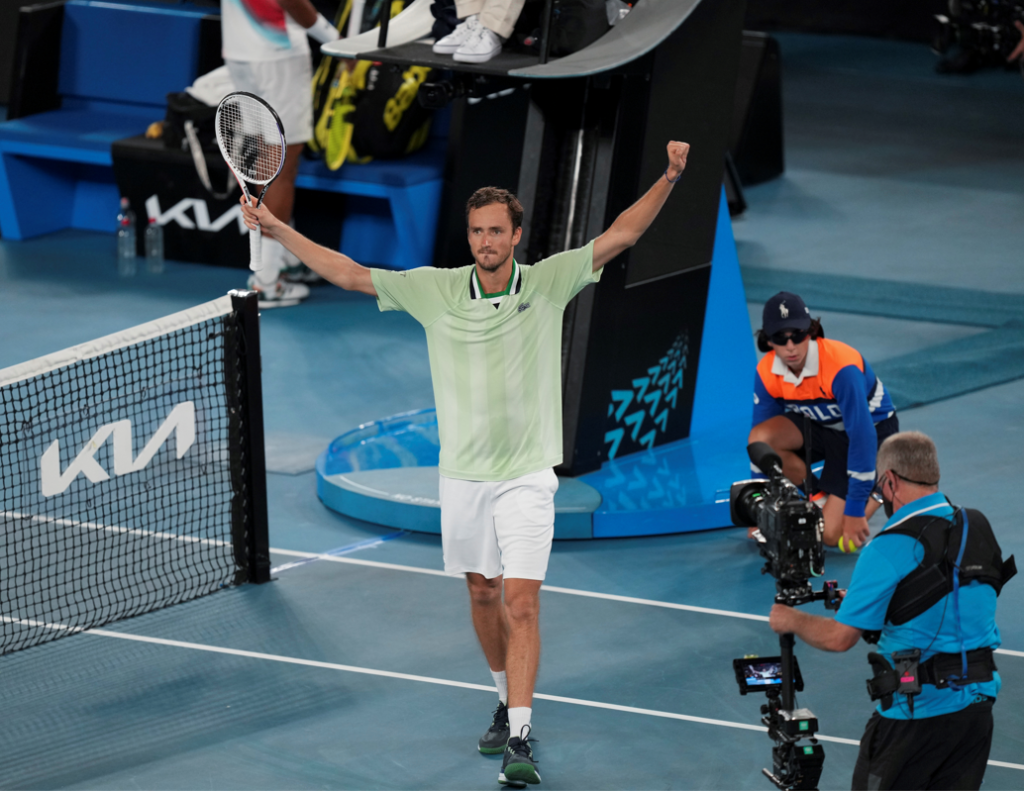
Despite a reduced crowd because of government COVID-19 regulations, the atmosphere in Rod Laver Arena was electric and loud, with the majority of spectators ‘barracking’ for Auger-Aliassime, and many of them discovering for the first time the kind of inspired tennis the 21-year-old Montrealer can play.
He was indeed impressive, going toe-to-toe with the rock-solid Russian in the baseline exchanges, serving well and demonstrating the versatility of his game by winning 41 of his 48 net approaches.
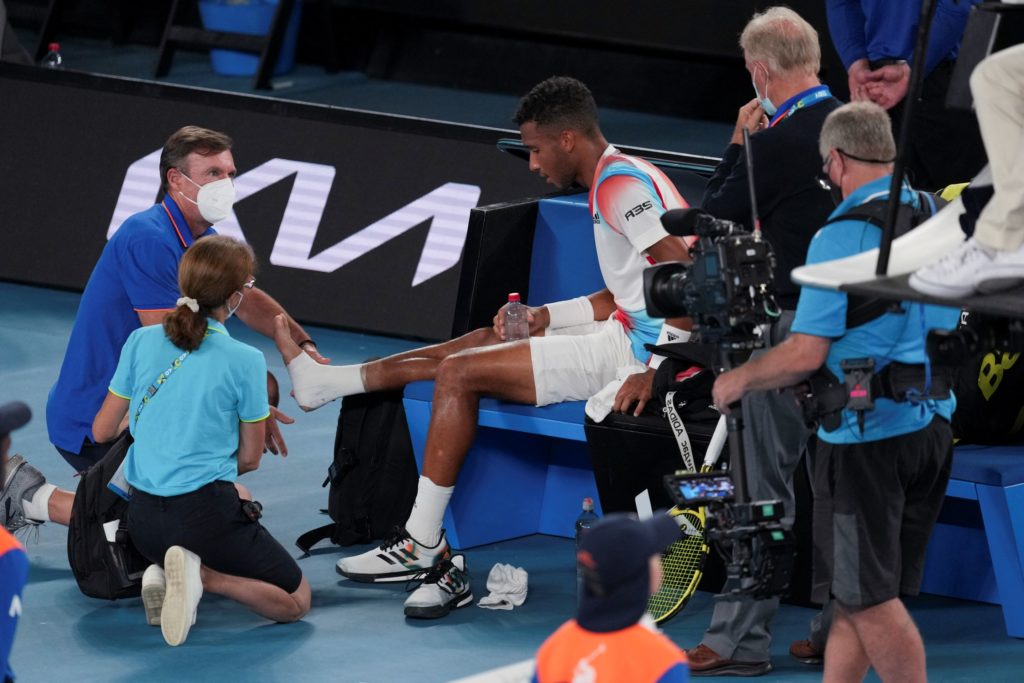
During a change-over midway in the final set, Auger-Aliassime had his right foot re-taped but it didn’t seem to be an issue of any kind.
The match had been more notably interrupted at a key juncture earlier when it began to rain and the roof was closed during the third-set tiebreak, right after Medvedev had got a mini-break to lead 2-1. When play resumed he immediately used the surprise tactic of serving and volleying a forehand winner, and then added an ace, to go ahead 4-1. It was a lead that was never threatened as he closed it out 7-2.
When asked about any effect the roof closing in the tiebreak had on the rest of the match, Auger-Aliassime said, “I still had a match point (in the fourth set), so I don’t know. The tiebreak was a bad start for me, but I thought he played good. I was not too frustrated with myself. I had chances in the fourth. I had chances in the fifth.
“The match was even. I think the roof didn’t impact me at all.”
Auger-Aliassime didn’t beat himself up too badly about the missed opportunities in the match, and gave credit to Medvedev, saying, “I think he was just a little bit more clutch than me – a little bit more solid at times.
“I can’t regret the effort that I put, and the chances I gave myself. I like to look at it in a positive way. Of course I would have loved to win. It sucks to lose in the end. That’s life. I just need to accept it.”
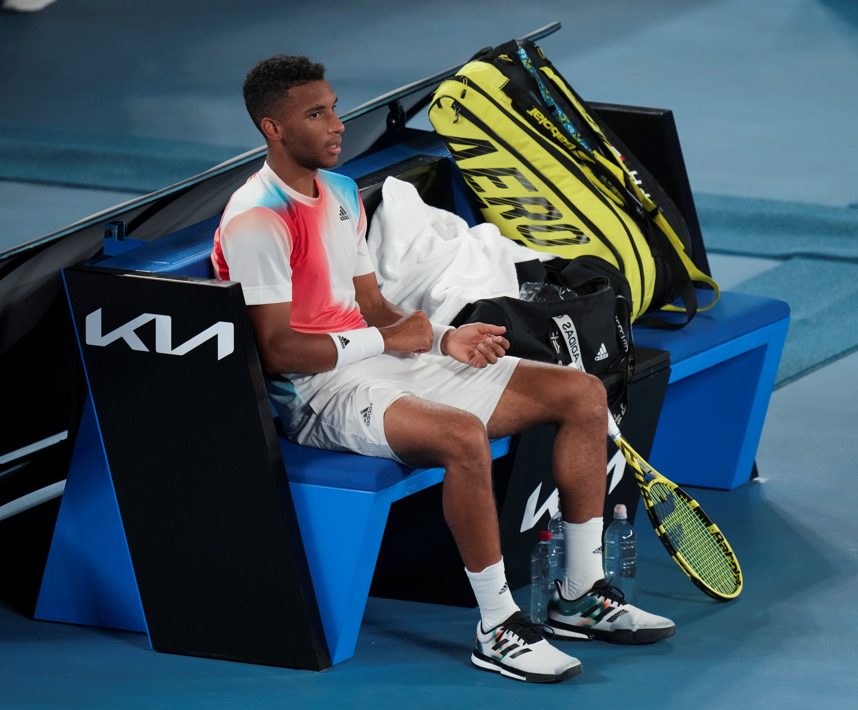
The way he performed in the crucible of a Grand Slam tournament quarter-final is further confirmation of the progress he has made and his current No. 9 ranking. “I always believed I could produce what I did tonight,” he said. “It’s the difference between knowing that you have this inside of you and actually showing up and doing it and being close to winning – one point.”
Auger-Aliassime played explosive, dynamic and relatively error-free tennis over the first four sets, especially in the first two sets, raising his game to heights he had never before reached at a Grand Slam in a match against an opponent as good as the No. 2-ranked Medvedev.
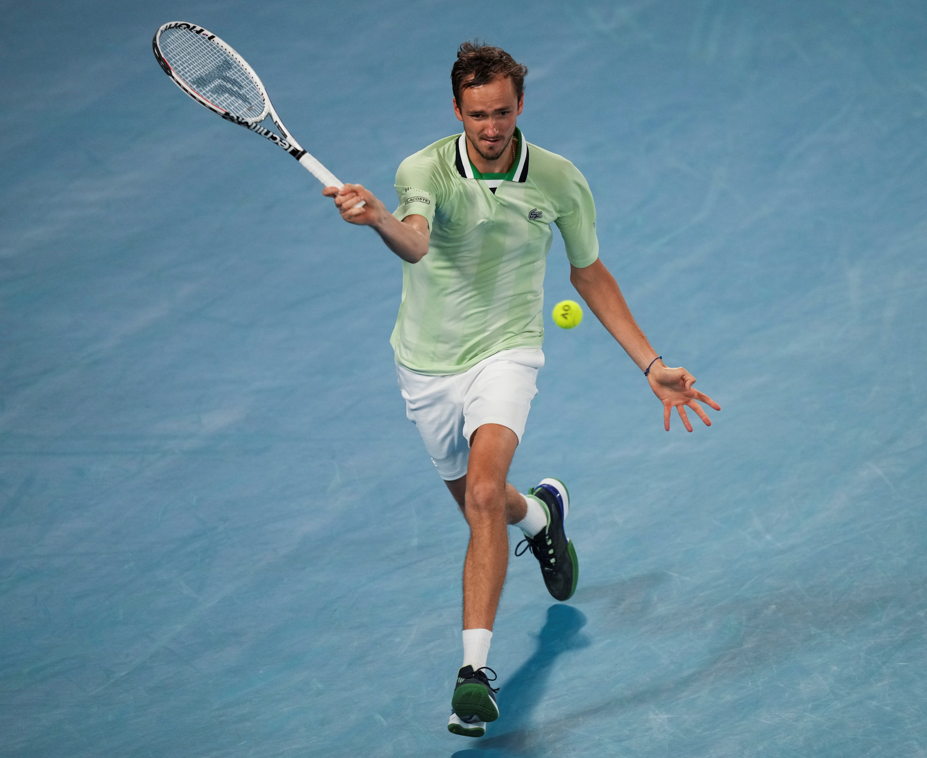
“I had zero confidence after the (first) two sets,” Medvedev said. “He (Auger-Aliassime) was playing insane, like better than I have ever seen him play, at least against me or in practice. I have never seen him play like this. It was unreal.”
The players engaged in so many breathtaking rallies, stretching the dimensions of the court to extremes, that the match is already being mentioned as potentially one of the best of the year.
Auger-Aliassime has been the prodigal son of Canadian tennis for most of a decade, since his early teens. He has risen gradually through the ranks to the top-10 echelon. While he didn’t get the result he wanted on Wednesday in Rod Laver Arena, the calibre tennis he displayed, and the grit to battle a player of Medvedev’s stature on even terms all the way to the end, are surely a prelude to even bigger accomplishments on the greatest stages in the sport.
“I’m going to leave Australia with my head held high,” Auger-Aliassime said, “and I’m going to go into the rest of the season knowing that I can play well – play well against the best players in the world.”
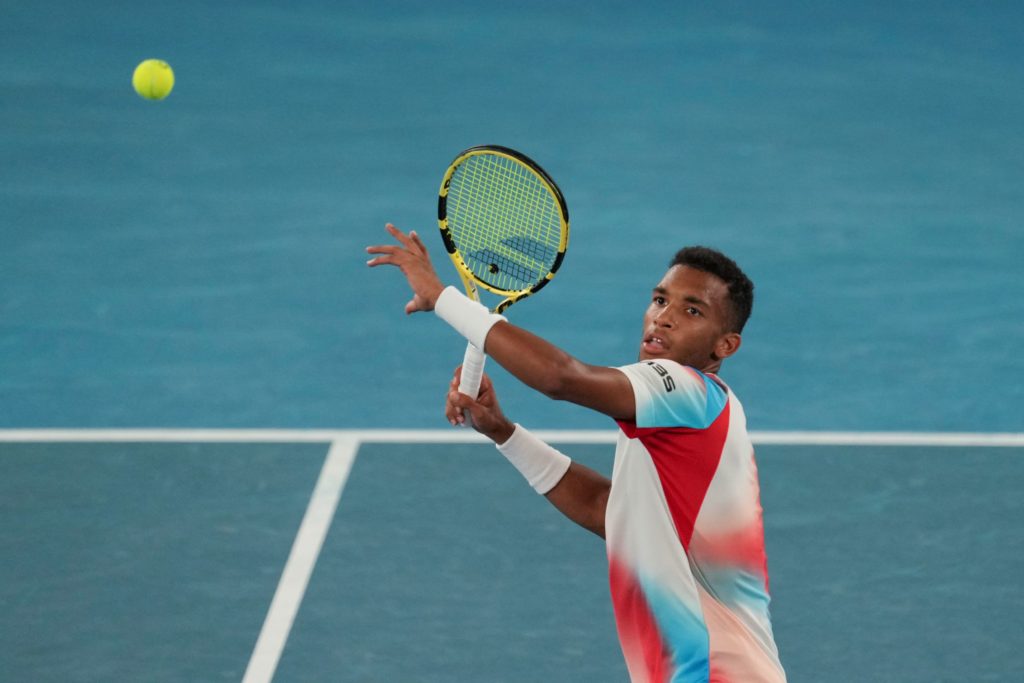
Feature Photo: Martin Sidorjak


